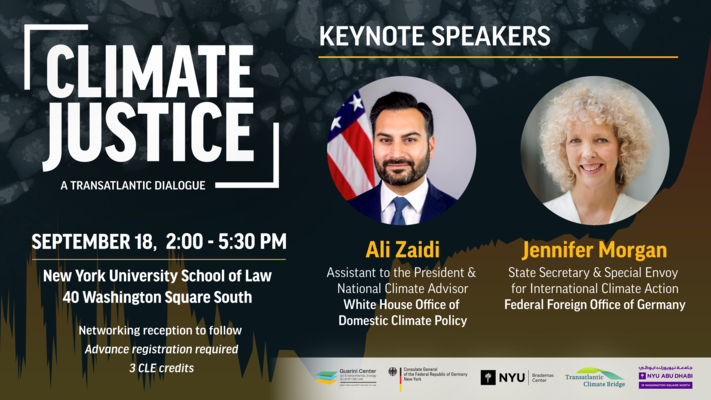Climate change remains one of the greatest threats facing our planet. And yet, its impacts are not experienced equally across the globe. Internationally, developing countries are among the most vulnerable to the effects of a drastically warming climate. Domestically, climate change disproportionately affects poor and marginalized communities, and exacerbates inequitable social conditions. In light of this reality, there have been growing calls for policymakers to consider the ethical, social, racial, and intergenerational dimensions of the climate problem.
This concept—broadly referred to as climate justice—calls for the just division and equitable distribution of the responsibilities to address climate change, and the burdens of mitigating its impacts. As policymakers, advocates, and other stakeholders increasingly search for innovative solutions to address disparities in climate impacts, there is tremendous value in bringing together stakeholders from different jurisdictions to share their experiences and perspectives.
At this event, panels of experts will discuss progress, opportunities and challenges in advancing climate justice at international, federal and subnational levels.
